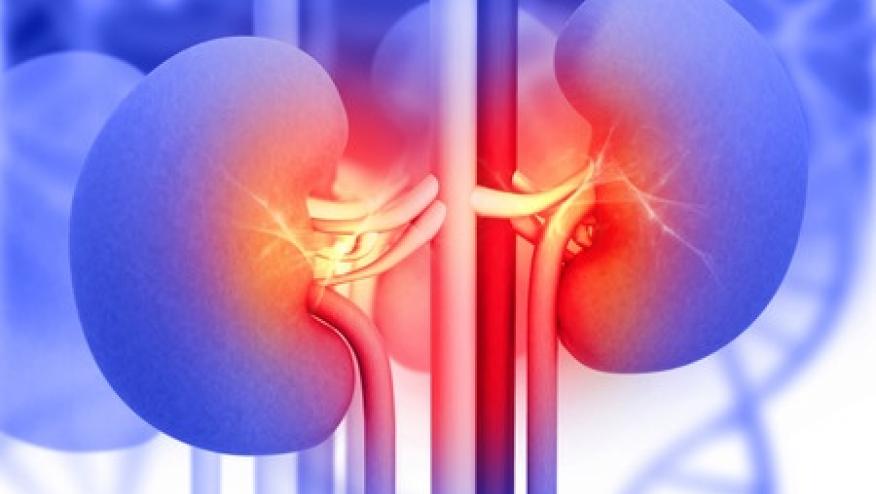Biologics Prevent AA amyloidosis progression to ESRD Save

One of the most serious complications of rheumat0logic and autoimmune diseases can be prevented with biologic drugs, a single-center chart review suggested, and some such products may be more effective than others.
Among 83 patients receiving biologic agents for their underlying conditions and who had serum amyloid-α (AA) amyloidosis affecting the kidneys, from 60% to 88% did not develop end-stage renal disease (ESRD) during mean follow-up of 5 years, according to Norbert Blank, MD, PhD, of Heidelberg University Hospital in Germany, and colleagues.
Furthermore, the anti-interleukin-6 drug tocilizumab (Actemra) appeared more effective than other biologics such as tumor necrosis factor (TNF) inhibitors, they reported in the Annals of the Rheumatic Diseases.
Although the study lacked a control group not treated with biologic agents, Blank and colleagues expressed confidence in concluding that biologic therapy "can control inflammation in most patients with AA, leading to a reduction of proteinuria and prevention of ESRD."
In many inflammatory conditions (including those stemming from infection or other non-autoimmune causes), the liver secretes large quantities of serum AA. While normally this protein is degraded into its constituent amino acids for later use in protein synthesis, sometimes short pieces break off and polymerize into fibrils that accumulate in tissues. Organ damage results eventually, with the kidneys typically the first to be affected. Progression can be tracked by measuring protein levels in urine. "The characteristic cascade of renal involvement is a subclinical proteinuria at the beginning that progresses to nephrotic syndrome and [ESRD]," the researchers explained.
AA amyloidosis follows any number of inflammatory diseases, including classical rheumatologic diseases such as rheumatoid arthritis (RA), as well as "auto-inflammatory" conditions such as familiar Mediterranean fever (FMF) and cryopyrin-associated periodic syndrome (CAPS). Earlier studies had suggested that biologic drugs used in these disorders reduced progression to ESRD, but these were small case series, Blank's group noted. Theirs is "the first comprehensive study to show the efficacy and safety of [biologic] treatment in renal AA amyloidosis," the journal noted.
The researchers pulled records for all patients treated for AA amyloidosis at the University of Heidelberg Hospital from 2010 to 2022. They identified 83 overall who had been treated with biologic agents; these were then divided into three groups based on their underlying diagnoses:
- Chronic inflammatory diseases (n=34): RA, inflammatory bowel disease, polymyalgia rheumatica, and others
- Auto-inflammatory diseases (n=24): FMF and CAPS
- No inflammatory syndrome detected (n=25), a.k.a. idiopathic AA amyloidosis
Notably, tocilizumab was not used in the auto-inflammatory group because the drug was not approved for either FMF or CAPS. Instead, these patients were treated with either anakinra (Kineret) or canakinumab (Ilaris), both interleukin-1 inhibitors.
About half of the chronic inflammatory group and two-thirds of those with idiopathic AA amyloidosis received tocilizumab. Most of the rest were treated with TNF inhibitors or anakinra.
Patients were considered to have preserved renal function if chronic kidney disease was rated at something less than stage V, which corresponded to an estimated glomerular filtration rate of >15 mL/min.
One-quarter of all participants showed progressive proteinuria and renal failure during follow-up. Not surprisingly, perhaps, these patients tended to have higher levels of serum creatinine at baseline (mean levels doubled compared with those with preserved renal function) as well as higher baseline protein-to-creatinine ratio (also doubled).
Blank and colleagues compared outcomes for the 34 patients treated with tocilizumab to outcomes for the 25 patients treated with other agents, excluding the auto-inflammatory group, which was not eligible for tocilizumab. Some 71% of the tocilizumab group had serum creatinine levels below 2.5 mg/dL at their last visit -- more than at baseline (59%) -- versus 28% on "other" treatment (P=0.002), a major decrease from baseline (56%). Other measures of progressing renal dysfunction showed a similar pattern.
Besides the lack of a control group not receiving biologic drugs, limitations to the analysis included its single-center retrospective design and reliance on administrative records. "Another limitation is the heterogeneity of patients with [chronic inflammatory conditions] regarding the pathophysiology of their underlying primary disease," the authors observed. As well, the study did not examine amyloidosis outcomes for nonrenal systems, nor treatment effectiveness with regard to patients' underlying conditions.
Source Reference: Kvacskay P, et al "bDMARD can prevent the progression of AA amyloidosis to end-stage renal disease" Ann Rheum Dis 2024; DOI: 10.1136/ard-2023-225114.









If you are a health practitioner, you may Login/Register to comment.
Due to the nature of these comment forums, only health practitioners are allowed to comment at this time.